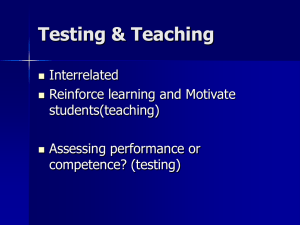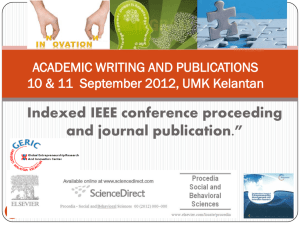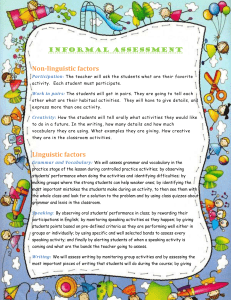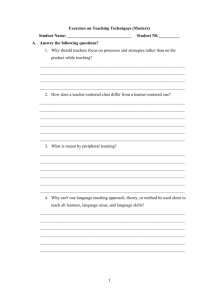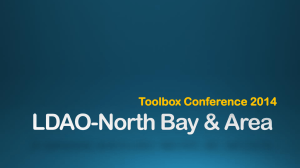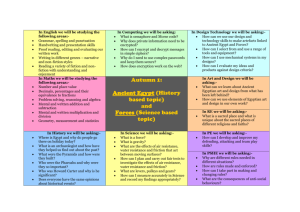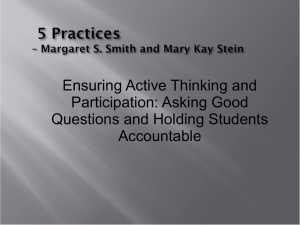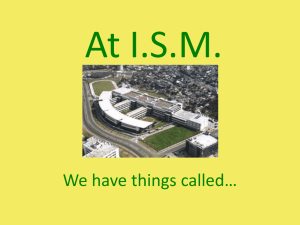Curriculum for Communicative English Language
advertisement
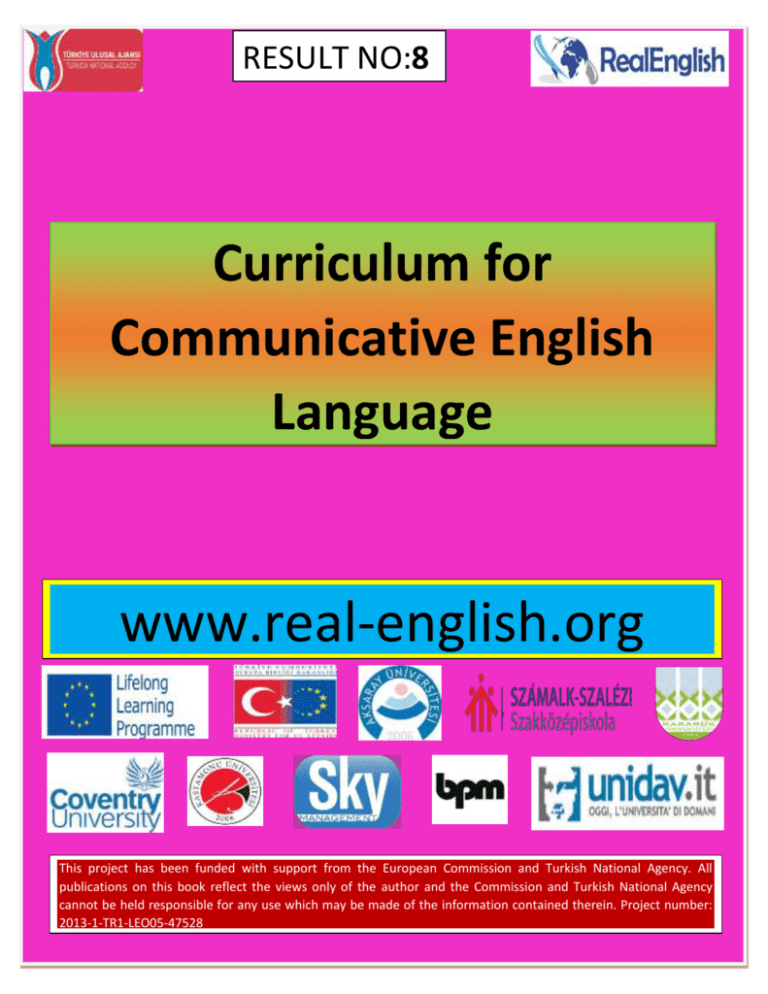
RESULT NO:8 Curriculum for Communicative English Language www.real-english.org This project has been funded with support from the European Commission and Turkish National Agency. All publications on this book reflect the views only of the author and the Commission and Turkish National Agency cannot be held responsible for any use which may be made of the information contained therein. Project number: 2013-1-TR1-LEO05-47528 After studying to get common point for the Curriculum for Communicative English Language followings were reached and accepted as common curriculum for the language learners. OVERALL A. Level : B1 B. Duration : 3 Months C. The objectives of the subject The English language is used everywhere. When we meet people from other countries, we need English for communication. English is used in films, literature, songs, sports, business, products, trades and entertainment, and through these channels many English words and expressions have found their way into our own language. When we want information on something of private or professional interest, we often search for it in English. Moreover, English is increasingly used in education and working life, also in academic life. Academicians need to know English at, at least, B1 level to communicate with other academicians from abroad or make search on foreign academic resources. Thus English as an international subject is both a tool and a way of gaining knowledge and personal insight. Real English Project will enable the academicians to communicate with others on personal, social, literary and interdisciplinary topics in three-month-course duration. It will give insight into how individuals think and live in the English-speaking world. Communicative skills and cultural insight can promote greater interaction, understanding and respect between people with different cultural backgrounds. In this way linguistic and cultural competence contributes to the all-round personal development and fosters democratic commitment and a better understanding of responsible citizenship. D. The Contents The contents have been structured into three main areas with competence aims. These main subject are as supplement each other and are considered together. A. Intermediate Listening Lessons: During our course academicians will improve their pronunciation skills by listening phrases and idioms in the texts which will be able to be listened. B. Speaking and Conversation Lessons: During our course academicians will improve their conversation skills by answering the multiple choice questions in which one turn in the conversation is missed., C. Video Lessons: During our course academicians will also study video lessons in which both they can listen and read. In this videos subtitles are used and they focus on understanding of language itself. D. Vocabulary Lessons: In this part, there are two main titles; Phrasal Verbs and General Vocabulary. Academicians will able read the explanations and hear the pronunciations of common phrasal verbs, words, and phrases. They will also use Dictionary and Phrasalonary pages. CURRICULUM (Content of Modules) Module 1: Flying Overseas Booking a ticket Check-in Passport control Taking a taxi Hotel check-in Filling in required documents Asking for bill Module 2: Arrival Module 3: Exploring the City (Part-1) Visiting Info-desk Travelling around the city Visiting historical and touristic places Module 4: Exploring the City (Part-2) Finding places to eat & drink Talking about the menu Ordering Shopping Module 5: At the Conference Hall (Part-1) Registration Meeting with people Introducing yourself / talking about your CV Module 6: At the Conference Hall (Part-2) Listening to a conference or presentation Taking notes Asking questions about the speech Preparing a conference presentation Giving an effective speech Effective body language Ending the presentation Module 7: At Work Module 8: Discussion Session Taking notes Asking understandable questions Listening to questions Giving effective and reliable answers Module 9: Got Lost! Asking for directions Module 10: Emergency! Calling for help Visiting a hospital Talking about aches Filling in required documents Module 11: Phoning Colleagues Phoning colleagues from the international meetings Asking for a clarification or repetition on the phone Discussing about an issue in the field Module 12: Summing Up An example of a successful conference experience

